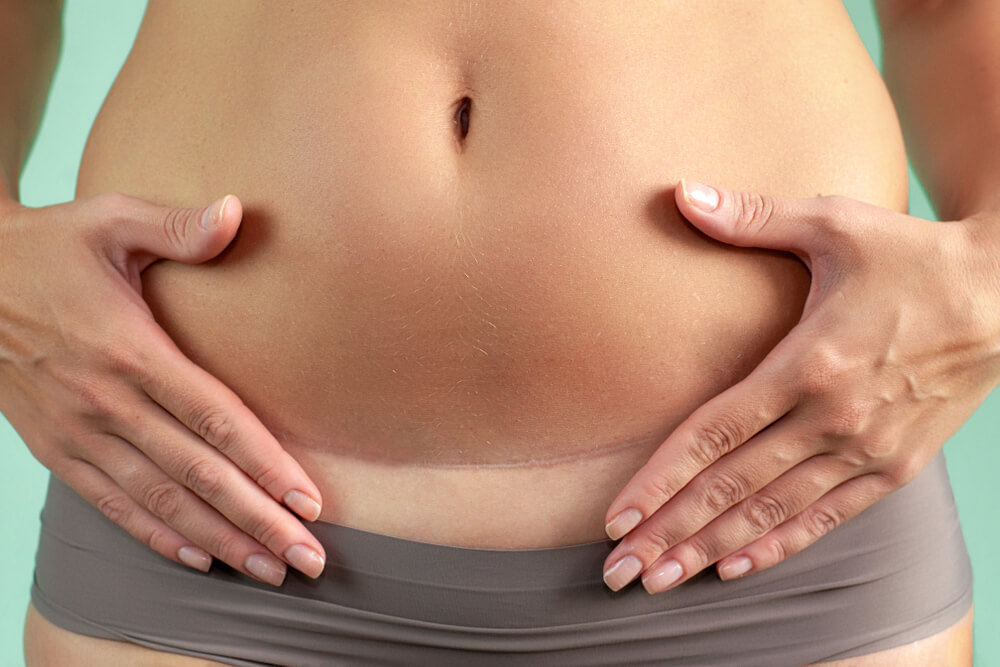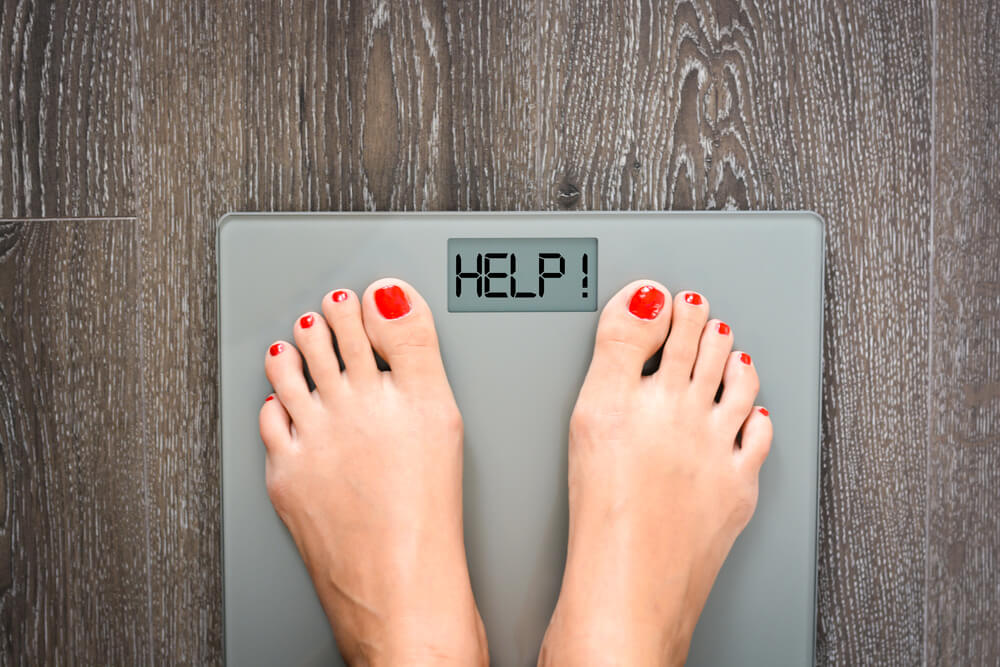While most women don’t find hysterectomy recovery challenging, some may be wondering, “does a hysterectomy cause weight gain?”. If you’re one of these women who struggle with the thought of hysterectomy and weight gain, this article is perfect for you. You’ll gain insight into how to have a seamless hysterectomy recovery and manage hysterectomy and weight gain.
You’ll also find helpful tips, such as choosing a reliable hysterectomy specialist for the procedure. By selecting your healthcare specialist wisely, you’ll minimize the risk of complications and ensure your healing process is smooth.
So, do you gain weight after a hysterectomy? If so, what can you do about hysterectomy and weight gain? Find out below.
Hysterectomy Recovery: A Brief Overview
It’s beneficial to understand the hysterectomy recovery process before answering, “does a hysterectomy cause weight gain?” it’s beneficial to understand the hysterectomy recovery process. First of all, what is a hysterectomy? This is a surgical procedure that involves the removal of the uterus and sometimes the fallopian tubes, ovaries, and cervix. Typically, women between the ages of 40 and 50 may require this surgical procedure.
Due to removing the uterus, women do not get their regular menstrual cycles, and they cannot get pregnant. This also applies to women who have already entered menopause.
A doctor may recommend the hysterectomy procedure if you are experiencing some of these medical conditions:
- Endometriosis
- Gynecologic cancer
- Chronic pelvic pain
- Uterine fibroids
- Issues with pelvic support, such as a uterine prolapse
- Placenta accreta
- Abnormal uterine bleeding
If you are searching for a healthcare specialist with years of experience in the field and numerous successful results, we recommend Dr. Deborah Siman. Remember, choosing your doctor is crucial for a problem-free hysterectomy recovery.
Does a Hysterectomy Cause Weight Gain?

Do you gain weight after a hysterectomy? In many cases, yes, hysterectomy and weight gain may be related. In fact, your chances of gaining weight after a hysterectomy may be the greatest in the first year post-operation. Women who have a history of weight issues may be more susceptible to weight gain after the surgery. Premenopausal women who underwent hysterectomy without the removal of both ovaries are also at risk. So, do you gain weight after a hysterectomy? The odds are high. However, with a smart approach and proper expert advice, you can minimize the risk of hysterectomy and weight gain.
Partial Hysterectomy and Full Hysterectomy vs. Weight Gain
A subtotal hysterectomy or a partial hysterectomy involves the removal of the uterus but leaves the cervix in place. On the flip side, a radical or a full hysterectomy consists of the removal of the uterus, the cervix, and the ovaries, triggering menopause (no matter how old you are). In other words, full hysterectomy is surgical menopause.
Typically, women may gain five pounds in menopause. As a reminder, menopause is a natural process when the body produces lower levels of estrogen. Sometimes, menopause may come with weight gain. You will get the same effect when you eliminate your ovaries through a hysterectomy.
Overall, a partial hysterectomy can lead to weight gain. However, there are many things you can do to minimize your risk of gaining extra pounds. We elaborate on these tips later in this article.
Weight Gain and Uterus Removal
Depending on the hysterectomy type and your doctor’s recommendations, you might need to avoid all strenuous activity (such as working out, running, lifting heavy objects, etc.) after your surgical procedure. Typically, most patients require around six weeks of rest after a hysterectomy surgical procedure. This strenuous activity also includes sexual activity.
If your normal routine involves working out, going for jogs, weightlifting, or any other type of exercise, this resting period can have an impact on your body weight. However, remember that you can go back to your normal routine once you recover.
What Can I Do to Minimize Weight Gain After a Hysterectomy?
Unfortunately, in many cases, women who have hysterectomy might gain weight after the procedure. As mentioned, the risk of gaining weight is even more significant in women who have previously struggled with managing their normal body weight. The good news is, you can take some precautionary steps to plan for the period following your operation carefully. By adhering to some or all of the tips below, you can greatly reduce the chances of gaining weight post-hysterectomy, whether it is a full or partial hysterectomy. Keep on reading.
Engage in Light Physical Activity if Possible
Your healthcare provider may advise eliminating all physical activity following the surgical procedure. However, in some cases, you might have the possibility of engaging in some physical activity such as swimming or yoga. Of course, any form of physical activity may be off-limits for you, so listen to your doctor. If you are able, you can take short strolls around your neighborhood to keep you fit and keep stress at bay. Walks are also beneficial for clearing the mind.
Eat a Wholesome and Nutritious Diet
Your diet will be a key component of whether you gain weight, maintain it, or even lose fat! Since you will likely be limited in physical activity, the recovery period will be an excellent time to focus on your dietary habits. We recommend you focus on whole foods rich in macro and micronutrients. Consume a lot of protein and fiber-rich foods such as turkey, chicken, lamb, tofu, broccoli, cauliflower, kale, beans, and legumes. Vitamin-rich vegetables and fruits are excellent as a snack, as the nutrients can help you with a faster recovery.
We recommend you swap out calorie-dense foods with low-calorie alternatives. For example, ditch greasy fast food for a home-cooked option. You could also refrain from using heavy sauces and oily condiments and instead make your dips, spreads, and dressings at home.
Keep a Positive Attitude
A positive mindset will get you a long way during your recovery process and during any period in life. If you cannot exercise following your surgical procedure, we recommend resting plenty, staying hydrated, eating nutritious foods, and thinking positive thoughts. Of course, this period will be challenging, both physically and mentally, and we get that. You have every right to feel “off.”
Our greatest tip for avoiding weight gain following the surgical procedure is to be kind to yourself. Listen to your body and honor it. Besides nourishing your body with wholesome foods, it’s best if you also feed your mind and soul with positive thoughts, positive affirmations, and soulful content. Listen to inspirational podcasts, learn how to meditate, or read a good book. When you apply all of these tips and tricks, you will be unrecognizable! People will notice the inner glow, and you will feel better and more confident in your body. Good luck!
The Takeaway

Unfortunately, you might gain weight after a hysterectomy. However, there are many ways you can avoid packing on extra pounds, such as engaging in light exercise (if possible), eating nutrient-dense foods, and getting enough rest. Remember, the side effects of hysterectomy are temporary, and you will likely lose weight once you have recovered.
Give Us a Call Today
Have you or a loved one been considering a hysterectomy? With us, you are always in good hands. Give us a call today to schedule an appointment. Expert results are guaranteed.


